
The Iranian government insists on ratifying FATF bills
The editorial of Asr Iranian, written by Naghavi Hosseini, Spokesperson of the Iranian Parliament’s National Security and Foreign Relations Commission, explains why Iran should not join the Financial Action Task Force (FATF). The Iranian government maintains that not joining FATF will worsen the economic conditions in the country.
The government is said to be pushing for the ratification of FATF’s bills illegally. The government’s officials have been eager for this after the failure of the JCPOA and instead of working to solve Iran’s problems now the government is postponing finding any solutions until FATF’s bills are ratified.
The 11th and 12th Iranian governments have been unsuccessful in improving Iran’s economy, as they have been unable to lower the inflation rate, and improve living standards. Raising issues like the necessity of joining FATF is nothing but a cover-up for the government’s incompetence in the economy.
The government must look to strengthen Iran’s domestic foundations in different fields and use domestic capacities in order to improve public welfare and livelihoods, which is why joining colonial conventions like FATF or any other conventions will not bring about welfare and economic prosperity.
Joining FATF will create many problems for Iran. Under current conditions in which the Americans have imposed tough sanctions on Iran, joining FATF will disclose ways used in sidestepping sanctions. By joining FATF, Iran’s entire financial and monetary transactions will be overseen by members of FATF.
One other problem is the careful overseeing of Iranian enterprises and companies, because of which records of Iran’s economic activities and assets will be handed over to foreign countries. So joining this convention is a kind of self-sanctioning.
One other issue is that the financial transparency of Iran’s enterprises within the framework of FATF’s standards will result in the sanctioning of the country’s financial resources by America and certain western countries.
Asr Iran
Unpleasant facts; Iran’s economy according to the IMF
The International Monetary Fund’s (IMF) regional prospect report that was recently released made the headlines: it highlighted a one-tenth shrinkage in Iran’s economy during the past year and a 30% inflation rate for the first time in Iran’s economy.
There is no promising point in the report. Even though some domestic media outlets highlighted Iran ‘coming out of recession’ or ‘ the end of the impact of US sanctions’, the truth is that the US sanctions can no longer impact Iran’s economy, as there is not much left to be impacted. In actuality, oil production is for domestic requirements and the level of oil exports have definitively dropped to under 500,000 bpd. Meanwhile, Iran’s budget deficit has reached its peak.
The followings are the most important points of the report indicating the tough days which await Iran’s economy and people.
Economic recession: Iran’s economic growth in 2019 is – 9.5% (10% less than economic growth in the region) and in 2020, it will be zero (2.7% less than regional countries).
Economic recession without oil: Economic growth without oil is 4.2% in 2019 and it will be + 1.2% in 2020.
Reduction in oil production: According to the IMF, Iran’s average oil production in 2019 is 2.29 million bpd, and it will be 2.11 bpd in 2020. This is the lowest in the past 40 years.
Reduction in oil and gas exports: In 2019 Iranian oil exports were estimated at 600,000 bpd. This will drop to 500,000 bpd in the next year. Traditionally, Iran’s share of oil exports in the entire region is 10 to 11 percent. However, as such, it will shrink to 2 to 3 percent.
Inflation: According to the IMF report, the inflation rate in Iran will be 30% for the third consecutive year, which is unprecedented even in the fluctuating history of Iran’s economy.
Growth in liquidity: The IMF report shows that the level of liquidity in 2019 and 2020 will be roughly 27%.
Trade balance: According to IMF estimates, Iran’s forex income in 2019 and 2020 will decrease to $60bn and $50bn. From 2016-2018, Iran’s forex income was about $100bn.
Forex reserves: The IMF report indicates that Iran’s forex reserves will be under $69bn, while Iran’s forex reserves were more than $100bn until 2018 and before the impact of US sanctions.
Iran Wire
Iran’s astronomical capital flows into Turkey
The Chairman of Tabriz’s Chamber of Commerce in Iran says that during the past year and a half, $1.5 billion has been taken out of Iran to buy properties in Turkey.
Turkey is one of the few countries in which one can gain residency by investing $250,000, and according to the latest statistics by Turkey’s Statistics Center, 505,795 residential units were sold in Turkey in the first half of 2019. 20,000 units were purchased by foreigners, which shows a 69% increase compared to the same period last year.
Iraqis and Iranians with 429 and 415 units, respectively, stand first in purchasing houses in Turkey, while Russians, Germans, British, and Kuwaitis rank next.
According to reports, $150,000 is enough to buy a house in Turkey, and foreigners have injected $3 billion into Turkey in only 6 months.
Anatoli News Agency had earlier reported that Iranians – more than Iraqi, Yemeni, and Afghani citizens – had submitted the most applications for Turkish citizenship due to their financial ability, the ease of obtaining Turkish citizenship, and Turkey’s closeness to Iran both geographically and culturally.
Such investment in Turkey and other neighboring countries, apart from the investors’ motives, is not good news for Iran’s disarrayed economy. Meanwhile, despite migration increasing to Turkey, there has been a decrease in the number of Iranian tourists going to this country, following the fluctuation in both countries’ currencies. The number of Iranian tourists showed an 18% drop last year compared to 2017.
Independent Persian
Developing foreign relations is a necessity for improving business
The editorial of Tejarat Online focuses on why Iran must have good relations with its neighboring countries and the world to improve its economy.
Iranian President Hassan Rouhani is upset over the FATF (Financial Action Task Force) issue. In his recent cabinet meeting, he said, “we are proud of fighting and countering terrorists and corruption, so we shouldn’t allow them to accuse our banking system of money laundering; this is to the country’s loss. Why have some people created obstacles against four bills that have been ratified by the government and parliament? This is not in the country’s interests.”
Rouhani’s reaction was after the fact that FATF – with a much harsher tone – extended Iran’s deadline for joining the Palermo Convention against Transactional Organized Crime and Countering Financing of Terrorism (CFT) for four months.
The main point emphasized by the government headed by Rouhani is developing relations with the world. Iranian officials have now realized that cutting ties with the world has devastating consequences for Iran’s political, social, cultural, and economic spheres.
In this regard, Rouhani has said, “We must ease our relations with the world so we can export our own goods with Iranian branding and conquer the markets of other countries.”
The business atmosphere in Iran is not very well understood, and currently, all efforts in improving this have not been very useful. In addition, Iran’s business atmosphere has not been helped by US sanctions which have affected its relationship with neighboring countries as well as with other countries.
Accordingly, those who approve or reject a bill in the name of Sharia law and God must consider that improving business conditions and creating jobs will please God and is in accordance with Sharia as well.
In reviewing FATF bills, therefore, the country’s emergency conditions and dire economic situation, as well as the expectations of the unemployed and hopeful youth, must be considered.
Tejarat online

Hardliners lash out at Rouhani and his first vice president Hardliners lash out at Rouhani and his first vice president
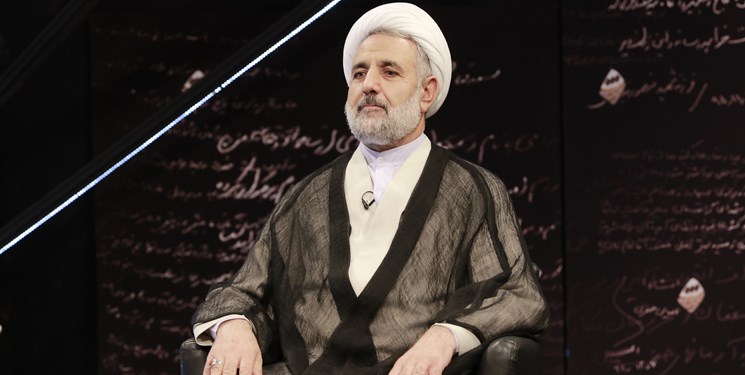
Mojtaba Zolnour, head of the Parliament’s National Security and Foreign Policy Commission, lashed out at President Hassan Rouhani for his recent comments on the necessity of approving the FATF bills. Accusing Rouhani of deceiving the Iranian people, he said Rouhani acted like a “magician” who first showed a key to the people yet “locked the country” afterward.
Zolnour added that Rouhani’s remarks, as well as the comments of the First Vice President Eshagh Jahangiri, are “instances of agitating the public mind” and “in contradiction with the constitution.” Zolnour said, “These gentlemen must be held accountable in this regard.”
Mojtaba Zolnour also pointed out that Rouhani cannot intimidate other bodies in the establishment by using“dictatorial literature”, simply “because he is the head of a branch and has power.”
In the meantime, Hassan Norouzi, Spokesperson for the Iranian Parliament’s Judicial and Legal Committee, called on Iran’s Judiciary to prosecute First Vice President Eshagh Jahangiri on the charge of misquoting the Islamic Republic’s Supreme Leader in regards to the FATF bills.
Eshagh Jahangiri said last week the Expediency Council needs to approve the FATF and CFT (Combatting Financing of Terrorism) bills as soon as possible, given that the Islamic Republic’s Supreme Leader, as well as the heads of Iran’s three branches, have already confirmed them. The Expediency Council immediately denied Jahangiri’s comments.
“The first Vice President’s misquoted remarks have been published in the country and international community; according to the law, this is the dissemination of falsehood,” said Hassan Norouzi. “The judiciary must prosecute the First Vice President for disseminating falsehoods and investigate his case.”
Jahangiri had also said that people should be informed about all affairs, including negotiations in the government, Parliament, Guardian Council, and Expediency Council. He said it would be better if the Expediency Council holds its meeting on FATF openly so that “people know what is going on.”
Another lawmaker criticized Jahangiri in this regard, saying if the Supreme Leader is opposed to Iran joining FATF, “We have a duty to obey him, regardless of its costs for the country.” However, the leader has shown no open disagreement with those bills, he continued.
The FATF has set a final deadline of February 2020 for Iran to comply with international norms.
Human Rights Watch: US sanctions have harmed the health of the Iranian people; Iranian bank accounts to be closed in Malaysia
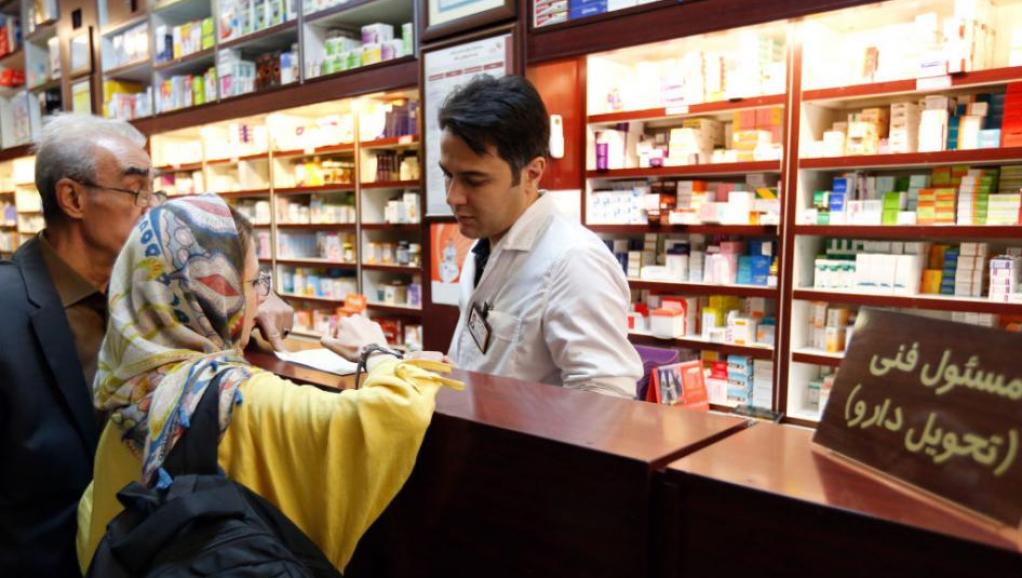
Human Rights Watch has published a report, saying US economic sanctions against Iran have severely limited this country’s humanitarian imports such as medications, thus harming the right of Iranians to health.
Despite the US government’s exemptions for humanitarian imports, Iranians do not have access to essential medicine, according to the report. Under international law, the US should monitor the impact of the sanctions on Iranian rights and deal with any violations caused by the sanctions, says Human Rights Watch.
Sarah Leah Whitson, Middle East Director at Human Rights Watch, said, “The comprehensive web of US sanctions has led banks and companies to pull back from humanitarian trade with Iran, leaving Iranians who have rare or complicated diseases unable to get the medicine and treatment they require.”
Meanwhile, Malaysian banks have taken steps to close bank accounts of Iranian individuals and companies. It is said that this measure is taken due to the US financial sanctions on Iran, which indicates that these sanctions have put severe pressure on the Iranian people.
Malaysian banks have reportedly given a month to Iranians living in that country to withdraw their money out of their bank accounts. 10,000 Iranian citizens are said to be living in Malaysia.
The IRGC Navy to use new weapons in its upcoming drill
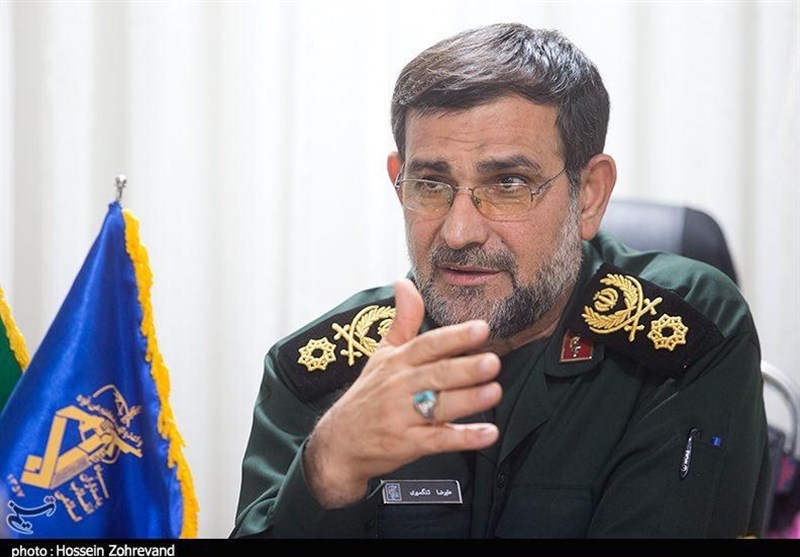
The Commander of the IRGC Navy said new domestically made weapons will be used in the upcoming navy drill. Ali Reza Tangsiri also pointed out that the IRGC Navy constantly monitors any foreign ships entering the Gulf.
Admiral Tangsiri also noted that the Supreme Leader, Khatam al-Anbiya Central Headquarters and the Commander-in-Chief of the IRGC continually appraise the capabilities of the IRGC Navy, “so that we are always fully prepared.”
Tangsiri maintained that the IRGC Navy, as well as Iran’s army, are proud of using military equipment made by the Iranian Navy and Defense Ministry. He said a new military vessel has joined the IRGC Navy’s fleet, adding the IRGC currently possess military speedboats with the speed of 90 knots.
150,000 people die yearly due to heart attacks and strokes in Iran
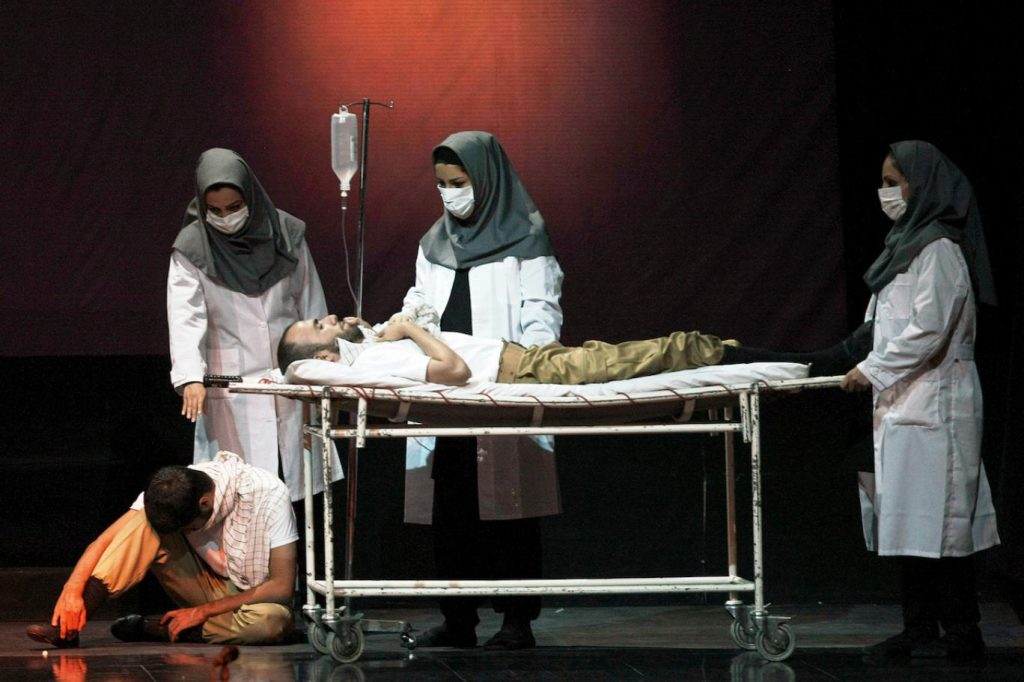
According to the Deputy of the Health Minister, Reza Malekzadeh, upwards of 150,000 people annually lose their lives in Iran due to heart attacks and strokes, despite the fact that 80% of these cases can be prevented.
Malekzadeh said that 50,000 of those who died of a heart attack and stroke in Iran were under 70 years of age, and 12,000 were under 50, adding, while 80% of cardiovascular diseases are preventable due to successful research in the world and Iran, 50% of mortalities and disabilities in Iran are due to these diseases.
Earlier, Dr. Massoud Ghassemi, Chairman of the 19th Congress of Cardiovascular Disease, had said that the age of heart attack in Iran has reached 30, blaming issues like air pollution, lack of mobility, stress, overweight, and smoking among the significant factors for the decrease in the age of heart attack among Iranians.
He had added that the annual mortality rate in Iran is 357,000, of which 35,000 lost their lives due to a heart attack and stroke. According to Dr. Ghassemi, the rate of mortality is 300 people per day, most of which take place in Tehran.
According to the World Health Organization, 63% of deaths in Iran are due to cardiovascular diseases, 28% due to brain diseases, and, in general, Iranians are inflicted with heart diseases 10 to 20 years sooner than western Europeans and Americans.
The Society of Seminary Teachers of Qum criticizes the presence of women in stadiums
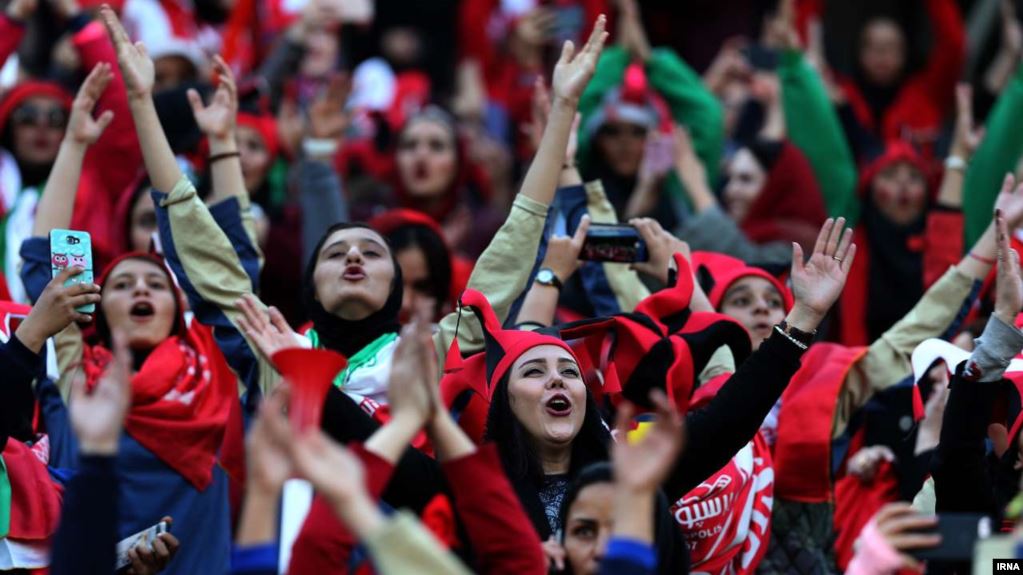
The Society of Seminary Teachers of Qom criticized the presence of women in stadiums, calling it an attempt by “some officials to polarize the country”.
The society has expressed regrets regarding “pushing women to go to men’s stadiums” during months when Shias hold mourning ceremonies for their imams, adding that the duty of the officials is to resolve the economic problems of the country and make the Iranian people proud. However, the statement said, “some officials seem to polarize the country at any possible chance”.
This seminary asserted that it is the inherent duty of the Islamic Republic’s officials not to “violate religious precepts,” while emphasizing that resolving the country’s problems is dependent on “observing Islamic rules and orders”.
On October 10, 2019, Iranian women were able to buy tickets and go to Azadi Stadium for the first time since 1981 to watch a soccer match.
After Sahar Khodayari, known as the “blue girl”, committed suicide for not being allowed to go to a stadium, the FIFA president followed up the issue and said that allowing women to go to stadiums is the right thing to do, adding that this path cannot be stopped or reversed.
Massoud Slotanifar, Iran’s Minister of Sports and Youth, has announced that 10 stadiums in several cities including Isfahan, Tabriz, Mashhad, Ahvaz, and Shiraz are ready to accept women.
The Society of Seminary Teachers of Qom, headed by hardliner Mohammad Yazdi, is one of the most influential religious figures close to the Iranian regime.
